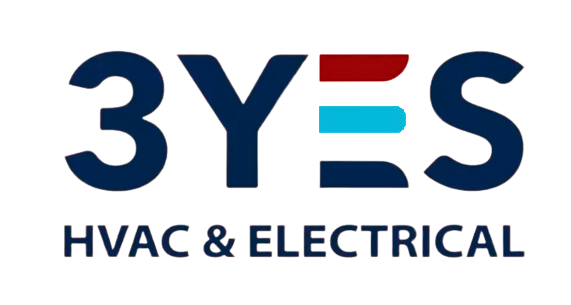FAQs
We are here to help. If you can't find the answer you're looking for, call us on 0800 393 722
Collapsible content
Where do you ship to?
We currently provide FREE shipping to Auckland and Hamilton regions.
NZ-wide delivery is coming soon.
We are happy to provide a quote for shipping outside of Auckland/Hamilton - just send us an email to info@3yes.co.nz and we will be happy to help.
View our full Shipping Policy here.
Do you install heat pumps and do the electrical works?
Yes we do!
Not only do we provide the finest solution for your needs, but our certified installation team and electricians will also handle the installation process. Rest assured, our team of registered electricians will take care of all electrical works required.
Which Heat Pump System is best for me?
We sell and install a number of different heat pump systems and brands. Here is a simple breakdown of each type:
1. Single-split system: This system consists of one indoor unit and one outdoor unit, making it ideal for heating or cooling a single room.
2. Multi-split system: With multiple indoor units connected to one outdoor unit, this system is suitable for situations where you need to heat or cool multiple rooms.
3. Ducted systems: This type of system involves one outdoor unit connected to one or more concealed indoor units. The heat is distributed through ducting tubes to individual rooms, making it a suitable solution for heating or cooling an entire house.
How much does it cost to operate a heat pump?
The cost of running a heat pump all comes down to the heating needs.
Heat pumps are designed to extract heat from the outside air, resulting in three to four times more heat production.
With an impressive efficiency of 300% to 400%, you only need to pay for approximately 1.5kW of electric energy for every 5kW of heating.
Compared to electric heating, heat pump heating costs only a quarter, and it's about one third the cost of gas heating.
So, investing in a heat pump can save you a significant amount of money.
What is the ideal temperature to run my heat pump at?
Finding the perfect temperature for heating or cooling can be a subjective matter.
While many individuals find around 22 degrees to be comfortable, it ultimately boils down to personal preference.
If you feel that 22 degrees is not quite right for you, don't hesitate to adjust it by a degree up or down until you find your ideal comfort level.
Are Heat Pumps beneficial for individuals with allergies and asthma?
Absolutely! Heat pumps come equipped with a variety of filters that work tirelessly to ensure the air you breathe is clean and pure.
1. Catechin Filter: This filter uses the power of static electricity to absorb dust, mold spores, and micro-organisms. It goes a step further by inhibiting their growth and deactivating them with a special ingredient extracted from apples called polyphenol.
2. Ion Deodorizing Filter: Say goodbye to unpleasant odors! This filter is designed to decompose absorbed odors using the oxidizing and reducing effects of ions generated by an ultrafine particle ceramic. It's like a breath of fresh air for your home!
3. Plasma Filter: With this high-performance electronic air cleaner, dust and odors don't stand a chance. It works tirelessly to remove them, ultimately improving the overall quality of the air inside your home.
So, rest assured that your heat pump is not only keeping you comfortable but also ensuring that the air you breathe is fresh and clean.
What is an Inverter Heat Pump?
Inverter systems are designed to be energy-efficient by utilizing a variable controlled compressor.
This means that the output is adjusted according to the specific energy needed to maintain the desired room temperature.
By reducing the output, less power is consumed, resulting in significant energy savings.
In addition to saving you money, the inverter control also ensures your comfort is maximized.
Do you install home ventilation systems?
Absolutely! We specialize in the supply and installation of home ventilation systems, which are gaining popularity as more and more people strive to enhance their indoor air quality and minimize condensation in their homes.
Our top recommendation are balanced heat recovery ventilation systems and positive pressure systems.
